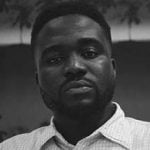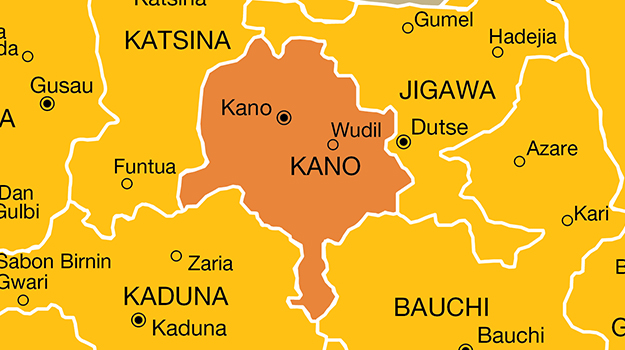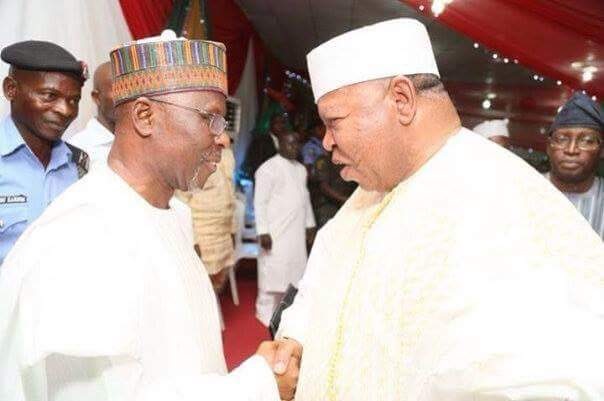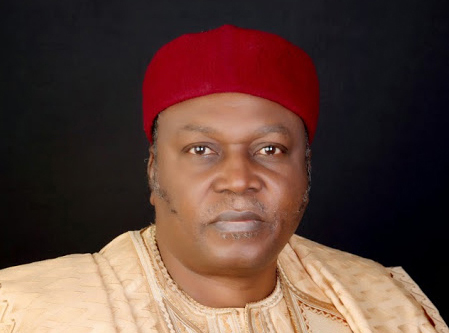“This is Israel, he has finished his youth service, but he chose to retain himself here in Borno.” It is J-Force telling me about the slim young man walking towards us and smiling like one with no worries.
“Borno of all places?!” I raise an eyebrow at Israel as we shake hands.
“Well,” he says with a shrug, “anywhere God puts you, just stay there. I served as a teacher at the school here in the barracks, and I have been there since. My name has been forwarded to the MoD for possible [full] employment; and even if my name doesn’t come out on the employment list, I will still stay – at least for a while before thinking of where to go.”
“You never thought of redeploying, when posted here?” I ask.
Advertisement
“Oh well, we did our camp in Benue, and I had already started the redeployment process I wanted Enugu.
“Those of us who had been posted to Borno State were told we could choose to redeploy. So, getting redeployed wasn’t anything hard. But, just a few days to the end of the camp, the Fellowship showed us a video of some previous corps members on a village outreach. I got touched.
“I’m coming to Bornu, I made up my mind. I went back to the official in charge of the redeployment and told him not to worry about my redeployment again. After camp, I picked my bag, and here, I have been.”
Advertisement
As we stand by J-Force’s car, I see about three young men, garbed in the NYSC uniform, standing not too far from us. “Do they still post corps members here,” I ask.
Israel answers: “Of course, those guys are Batch A.”
“You mean 15A?” I ask to be sure their posting is as recent as March 2015. “Yes,” Israel says, as he takes me to meet them.
“How did you feel when you saw Borno State on the NYSC posting list?” I ask one of them.
Advertisement
Chuckling, he says, “I wasn’t even in school then. One of my friends called me and said he had checked for me, and that I had been posted to Nasarawa State. I said, well, no big deal. Few minutes later, he called again. Sorry o, you’ve been posted to Bornu; you are only having your three weeks camp in Nassarawa he says.
“I told him to stop the nonsense, but he said he was darn serious. I was terrified. I couldn’t sleep. I gathered the courage to go check myself and I became weaker. I told myself that once I was in camp, I would redeploy to Ekiti. But at a point, I just felt that I should even come and see this Bornu sef. And that’s it. I’m here!”
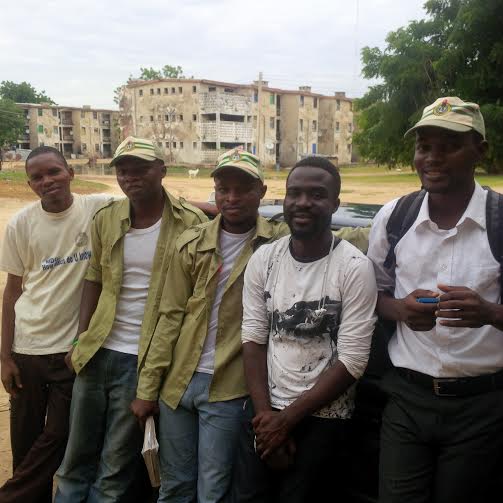
Since 1973, Nigerian graduates have been required to take part in the National Youth Service Corps (NYSC) programme for one year. These corps members, popularly referred to as corpers, are posted to states far from their state of origin. This action is aimed at bringing about unity in the country and help youths appreciate other ethnic groups.
In 2012, some corpers posted to the troubled states of Borno, Yobe and others expressed sadness as they received their call-up letters for the Batch-B NYSC service year, reported the Punch newspaper. The corpers said they were confused as they did not know what to do due to the spate of bombings and other forms of insecurity in these states. Earlier in the same year, the Sun newspaper reported that the Borno State governor had appealed to the minister of youth to deploy more NYSC corpers to Borno State and he assured that arrangements were in place to guarantee their security from Boko Haram insurgence throughout the duration of their service.
Advertisement
“But, is the government paying more to Borno corpers?” I ask, turning to Israel.
“No o,” he says. “In fact, the state government even takes from our pay.”
Advertisement
“What!”
Amazed by this fearlessness, I should host them to a few bottles of beer in the evening, I say to myself. “Is there anywhere we can hangout this evening,” I ask, looking across their faces. They stare at each other, and do not answer me.
Advertisement
One of them eventually breaks the silence: “The problem is, everyone must return to the Barracks by 4pm.” And, they are unsure if the mess in the barracks is really functioning. All corpers serving in Borno State must be within the precincts of the barracks, I later realise. But, where is the social interaction and fun that every Nigerian graduate look forward to in their service year?
FOOTPRINTS OF INSURGENCY
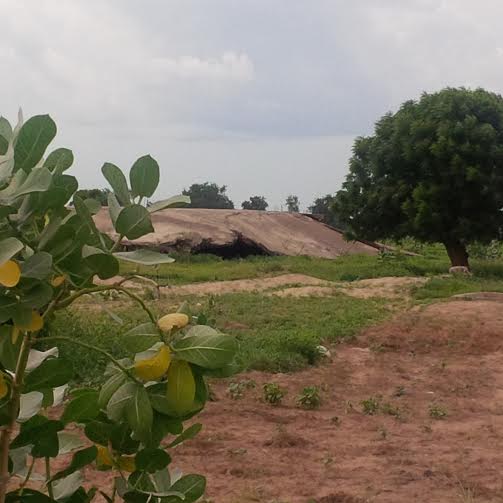
It is noon. J-Force, Jack and I set out to meet Abu, a friend who is excited I’m around and would take me for a Maduguri treat. Driving out of the barracks, I am shown a bunker just a few kilometers to the Barracks.
Advertisement
“That’s the handiwork of Boko Haram before we exposed them,” J-Force says. “The structure here used to be a masjid, a mosque,”
Jack cuts in. “One owned by a religious sect referred to, at the time, as the Yusufiyya brotherhood or Yan Boko Haram, but its adherents referred to themselves as Jama’atu Ahlis Sunna Lidda’awati Wal-Jihad. The site of the construction is unwittingly located practically within the unfenced part of Maimalari Cantonment here.
“While the construction was going on, no intelligence gathering, aerial or terrestrial surveillance or security consciousness of any kind interfered with the work. Some were quite apprehensive, but feared the backlash of dabbling into matters of religion because of the loss of over a hundred lives in Maiduguri in reaction to the Danish cartoon in February 2006.
“Also, all that occurred before the July 2009 confrontation that ignited the violent extremism. When the evil intentions of the group became apparent, Markas, the famous Mohammed Yusuf’s mosque at the Bayan Quarters area, and the one here within the Maimalari Cantonment, were destroyed. Legend has it that the mosque here has a bunker that was heading directly into the armoury in the barracks before the 2009 confrontation that exposed everything.”
We drive through Custom Road, and Jack tells me that the youths in the area coined the name, Boko Haram. “Many bombs have been detonated here,” he adds.
We drive past a tall fence, and J-Force tells me it’s the new prison, and it was attacked when the insurgents came to free their imprisoned members. We launch onto a street, and my friends tell me we are on Lagos Street. Down the street is a bridge running over the flowing water, which, I am told, flows from the Lagbo Dam in Cameroon.
“This is the bar beach,” my friends say. “It’s actually named after the popular Lagos bar-beach. The street got its Lagos name years ago, when the then Lagos State governor, Lateef Jakande, donated the Lagos House that is built at the beginning of the street.”
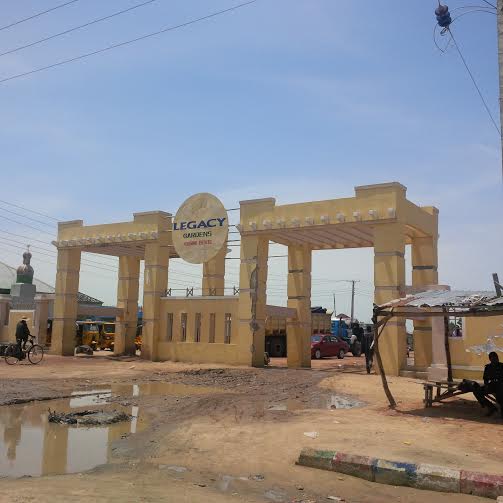
We drive past the Legacy Estate being built by the governor, and Jack tells me President Buhari didn’t applaud this project. Buhari, socialist and Nigeria’s new president known for his stand against corruption, had asked how much a unit of the houses cost and the outrageous amount mentioned got him angry. It is rumoured that Baba, as Buhari is fondly called, said that the money could have been used to resettle the displaced persons in the state.
We wait at a place where Abu joins us before taking us to a suya Joint beside Ramat Polytechnic. Sitting cross-legged on the mat, we are served suya and glasses of freshly-prepared banana juice that tastes so sweet that I hum over every sip. The relaxed ambience is in total contrast to the trouble Maiduguri is now known for. As I pick the spiced meat and sip on, I look around, at the cars parked. I cast my gaze at the plate number, at Borno state’s nickname printed on the plate: ‘Home of Peace’. Indeed!
“We will return Borno to its initial slogan, ‘the Home of Peace and Hospitality,’ which has been tampered with by the sect group,” former President Jonathan was heard saying in a Channels TV bulletin earlier this year at a campaign rally organised in Maiduguri to seek the people’s support for his reelection.
“When things got tougher, many of these politicians and elites ran to Abuja, leaving the poor citizens to bear the brunt,” Abu tells me. “But now, you can see their [politicians’] posters everywhere, because the by-election for the Borno Central Senatorial District is around the corner. We only see them during electioneering.”
Abu, a systems engineer, tells me of how the insurgency has affected almost all businesses in the state. “But I’m used to the bomb blasts,” he says, his face widening with a smile. “The bomb blast of last night exploded less than two kilometers to where we are seated now. If we do not hear the sound of bomb blasts in three days, it calls for celebration. That’s why my earpieces are always plugged into my ears.”
MARY MALIKI’S PARENTS MURDERED
Returning to the barracks, Jack tells me about a young lady whose parents were killed by Boko Haram. “She was abducted by these terrorists, and later escaped. I was in tears the first time I heard her story.”
We make a U-turn and we drive to one hidden local beer parlour where the lady, Mary Maliki, now works as a cleaner and bartender.
Aged 25 and looking unkempt, Maliki is from Gulak town in Madagali Local Government Area of neighbouring Adamawa State.
We arrive at the place and when I request to speak with her, Mary takes us inside one empty and dirty room. She fetches stools for us, and she sits on the floor.
“How did it happen?” I ask, peering into her eyes. She is shy, but Jack urges her to talk to me.
“Before Gulak was attacked,” Maliki begins, finding courage in Jack’s eyes, “soldiers were stationed in the town, and sometimes they used to fire warning shots in the air, just to scare off would-be attackers.
“The day the insurgents attacked, none of us knew it was anything different. We thought it was the same sporadic gunshots from the soldiers. We knew Boko Haram was attacking other places, but we never knew they could come to Gulak, because soldiers were everywhere. But, as I continued to hear the gunshots, and having lived in Maiduguri where Boko Haram has carried out many attacks, I figured it was them. I was at my shop, and so, I told people around that these gunshots sound more like that of the insurgents, because soldiers don’t fire like this, they do it tactically; one shot, two rounds, three rounds. I decided to close my shop and go home, to check on my elderly parents and siblings.
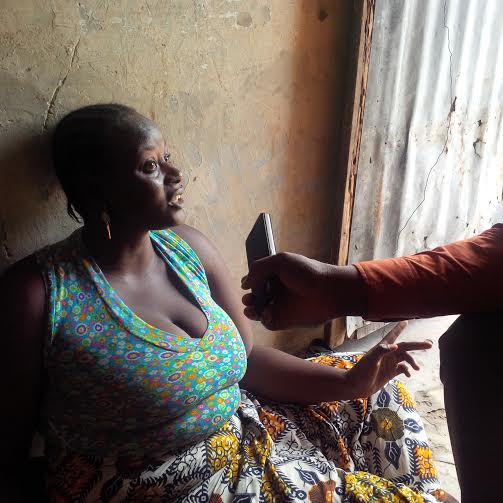
“On my way home, I saw soldiers running, and some of them asked me if I knew the safest route they could use to run out. I showed them the way to the stream and asked them to go through the mountain.
“My house is by the main road, and I noticed how soldiers had been dislodged and the Boko Haram terrorists had taken over the roadblocks, taking over the town. I managed to get into the house, and my mum asked me to me to run inside and hide by the goat herd while she remained with my father inside the parlour. We were still hearing the gunshots from outside.
“While I was still hiding, I noticed that the insurgents had arrived at our gate, they were banging the gate. In our compound, we also have a sty for the pigs, and you know Muslims don’t like pigs at all. So, when the insurgents came in and smelt the pigs, they asked; who are the Harina that are here? Harina is a derogatory term used on Christians.
“They then said all the Harina in this place should come out. My father had stroke; he couldn’t talk, and he was just looking at them. So they asked my parents to convert or die. I heard my mum say ‘I cannot deny Jesus.’ When my mum said this, the insurgents now said these are the type of Harina they are looking for, the stubborn ones that they can kill. I was peeping now, and I saw how my parents were shot. They shot my mum first, and then my dad.”
THE CAPTURE OF MALIKI
“The insurgents felt there was still someone inside the house.” Maliki continues, her eyes now teary.
“They began to ransack the whole place. I remained in the goat herd and they didn’t know that a human being was there. When they couldn’t see anyone again, they began to pick our things; cooking pots, food, chickens, and one of them even chased a chicken to the side I was hiding and I thought he had seen me. They took all these things and went away with them.
“All these happened around 4pm. I remained in the herd, hiding, till it was dark. Around 8pm, I came out and manoeuvered my way to the mountain. The mountain is the safe place. At the mountain, I met a lot of people who had run here for refuge. We were here on the mountain, eating wild berries and wild fruits, because there was no food. Some who were bold enough, when it is night, they would descend and go into the village to look for food, not minding whatever happened. It used to be at a very high risk, because those who were caught were shot instantly. My younger ones whom I met on the mountain became so hungry and sickly, and I, too, decided to descend down to the village to get food for them.
“When I got to the house, I discovered that the corpses of my parents weren’t there. When Boko Haram attacked, they spared some Muslims, and so, the kindhearted Muslims around had dug a grave somewhere by the house and buried my parents. I got some food and prepared it, and I thought I should relax and allow it get dark before returning to the mountain. I was so tired that I eventually slept off. When I woke, it was already daybreak. Scared, but because of my younger ones who were dying of hunger, I had to sneak out.
“The insurgents were already stationed everywhere. They saw me and called me, and I went to meet them. They actually saw me when I snuck out of the house. So, they started interrogating me, saying they saw me coming out of the house of those Harina; they asked if I was a Christian. Quickly, I told them that I was a Muslim. I had to lie to save my life. They weren’t satisfied, so they asked me to recite the kalima sh’ahada. Kalima sh’ahada is like the Muslim creed, and luckily for me, I knew this, and so I did. After reciting, one of them said they still have to take me to their Amir, their commander, where I will recite it again, and the Amir will be the one to give the verdict because he will know if I am telling the truth or not.
“I was taken to the palace that had been captured and now occupied by the Amir, and when I was presented before the Amir, he began to tell me that they, Boko Haram, are many in number and that even if every one of them is killed in Gulak, they still have more members that would come, and if people think this thing is for joke, it may likely not end forever. I was shivering and I used ‘sir’ for him. ‘Don’t ever say sir to me again’, the Amir boomed. ‘Sir is meant for soldiers; call me Almajiri or Mallam,’ He then ordered that I should be taken to the Hisbah police of Boko Haram. The Hisbah police then took me to a compound where I saw and met about 300 women. We were all given hijab, and were taught how to recite the Quran.
“After three days that we had been held here, I began to talk with some ladies on how we could find a way to escape. We put the plan to work, and about 20 of us escaped back to the mountain, and I could see my younger ones again. I discovered what looked like cholera on the people in the mountain; they were stooling, vomiting and dying. The place we were became dangerous, so we had to go farther into the mountain, and on my way, we saw caves and we entered.
“Each cave could take up to 100 people. The opening may be very small, but the inside was spacious. While we hid here, there were these Muslim youths who came up the mountain and saw us. We never knew they were spies. They went back and told the Boko Haram terrorists that there were people on the mountain, and that they could even take them there.”
MALIKI SHARES REFUGE WITH A PYTHON
“So, that day, around 7pm, the insurgents came up the mountain, and because they did not know the specific caves where people were hiding, they started shooting into the air to scare people out of the caves, and people actually ran out of the caves and some were shot. A few other people and I succeeded in running inside where we saw another cave. We got in and slept there for the night. While we were sleeping, I felt something on my body that didn’t feel like that of a human being. It was dark and we couldn’t see anything, and I was telling the people that I was feeling something strange around my body, and they said I shouldn’t worry that it was nothing and that maybe my body was touching someone else’s. When it was daybreak, we discovered that it was a python, a very big one. The snake coiled itself with its head on top. It was alive and it was a miracle it didn’t hurt anybody.
“We ran away from the place, down to a place where we saw some Cameroonian soldiers stationed. We ran towards them to seek help in getting into Cameroon. But they refused to hear us out, saying that we had Ebola and that we were Boko Haram member. They said they would not allow us to enter. They started telling us, in French, to go back.
“We didn’t really understand French, but some of the soldiers who could speak the Fulani language passed the message on to us. We didn’t want to go back, and while we attempted forcing our way in, the soldiers, who were now above us on the mountain, started stoning us with the rock debris. We had to run elsewhere.
“Then we got to one village called Gella, close to Mubi. We stayed here for a while before proceeding to Mubi. When we got to Mubi, I went to my uncles and told them how my parents were killed. I was given a bale of wrapper which I sold for a thousand naira, with the intention of using the money as transport fare from Mubi to Yola, the state’s capital where we expected to be safer. I was still in Mubi when it was rumoured that Boko Haram was coming to attack Mubi. And indeed, they attacked!
“When the insurgents got to Mubi, everybody was running helter-skelter, along a place we call Maiha Road. We were running, and in the commotion, I couldn’t see my younger ones again. Everybody was scattered. And while people were running away from the insurgents, I was running toward them to look for my younger ones. I told myself that even if it meant dying, I would rather than leave these kids behind. One of the insurgents now stopped me and was asking who I was and where I was headed. I told him, bluntly, that I was looking for my younger ones. He said, ‘Don’t you know they are doing God’s work? If a bullet hits you now, people will say Boko Haram has killed you. He said I should find a place to sit and when they were through with God’s work, I could now look for my younger ones.
“I continued to search for them, and along with other people, we trekked more kilometers into Maiha. Arriving Maiha, it was rumoured, too, that Boko Haram was coming to attack. So people started running for their lives… running from Maiha to Gombi, the part of Adamawa bordering Borno state. As people ran away, I stayed, hoping to see my younger ones. When I didn’t see them, I had to trek back to Mubi to search for them again. I didn’t see them, and then I went back to Maiha. While in Mubi, I had hijab on, disguising as a Muslim, and at one point, in my presence, four Igbo people were slaughtered. Three men and one woman. They were asked to recite the Muslim creed, and none of them could do it, except for one and he was freed. In Mubi, I was also told to go check a place where lost children were kept. I went there and couldn’t find my younger ones.
“In Maiha, a military jet came and bombed the military base so that the insurgents wouldn’t have access to the military arms that were there. And while the jet was flying away, the insurgents used RPG to shoot at it. The shots got one of the wings of the jet, and probably on impulse, the jet released a bomb and it landed on the rock where people were taking refuge, and a lot of people died. Some pregnant women hiding here were forced to deliver prematurely. I was scared and I had to run away.
“While running, I saw a woman with a child under a tree. The child was crying but the woman wasn’t responding. I moved closer, and I tapped the woman to discover she was already dead. I picked the child. This time, I was so weak, sick and hungry. But I mustered up the strength to carry the child. My strength was failing me and when I got to a place where I saw people, and I told them about the child, and that I cannot carry the child anymore. I begged them to help me take the child to Yola where there’s also a place for kids whose parents had been killed.
“I had to go back to that mountain area hit by the military bomb to check for my younger ones. There, I saw many dead children. I still looked closely, trying to see if I could recognise the bodies of my younger ones. While at it, I saw a woman who just gave birth to twins, and another woman, a single baby. I also saw a man crying by the dead body of his pregnant wife. What will I tell her people o? What will I tell people o, the man cried. I think he is Igbo.
“I saw so many things,” Mary continues, wiping her face with the back of her palm.
“Many things I cannot even describe. I eventually saw my younger ones in Cameroon, after the Adamawa state government had entered an agreement with the Cameroonian government to open the border so that people could run in. I saw them in a place where about a thousand kids were being catered for. I got them and we were taken to Yola. From there, I raised little money to transport us to Maiduguri, because it was already rumoured that Yola would be attacked, too. On our way, we had a terrible accident. If you saw the bus, you would never think that anyone survived. We, eventually, got into the relative peace of Maiduguri.”
As we drive back to the Barracks, Jack tells me Maliki’s is just one out of many of such gripping stories.
My mobile devices are running out of power, and my friends tell me that for more than six months now, there has been electricity outage in Maiduguri.
“Everywhere is in darkness, except for those who have generators,” Jack says.
“The insurgents destroyed the power stations and whenever attempts are made to re-fix them, the insurgents will attack the engineers on site and even attack the soldiers attached to them,” J-Force adds.
“There was a time when communication was totally down in Maiduguri; you could not make or receive phone calls.
I ask him how people coped.
“People in Maiduguri had to go to Damaturu to make and receive calls,” he answered. “There used to be this big mast by the NNPC in Damaturu. Then, you will see Maiduguri people gathered there to make calls. People stopped going to Damaturu to make calls when the attacks became serious in Benisheik, along that road you would use to Damaturu.”
It is dark. J-Force and I enter the room and I tell him I want to use the toilet. The buckets in the room are empty, and he takes two of them down to the well outside.
“Tap water is unavailable in the barracks?” I ask him, raising a curious face.
“We will have to use a koroba to draw water from the well o,” he says, smiling. “However, there is this tanker that comes to supply us, and even when we pay for it, it doesn’t come regularly.”
Bending over the thing posing as a toilet bowl, I tuck the base of the torchlight inside my mouth and I use my hands to chase the teeming flies coming to perch on my dangling manhood.
Femi Owolabi, a freelance journalist, writes from Lagos
